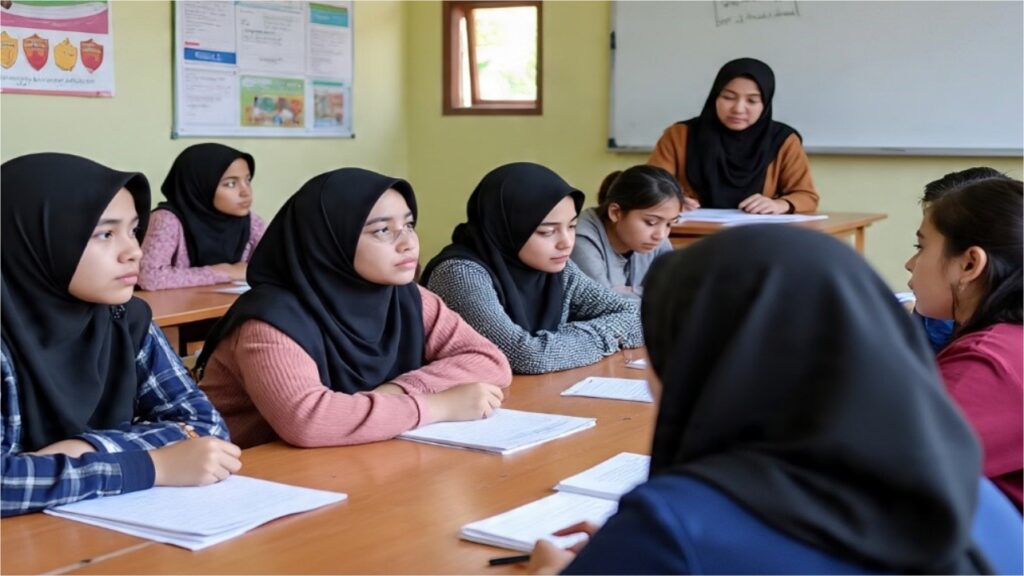From Campus to CEO: The Role of Universities in Women’s Entrepreneurial Empowerment in Pakistan
By Dr Aamna Sohaib, University of Sialkot
By mid of year 2025, the overall population of Pakistan is approximately 255.2 million comprising of 49.3 % (125.9 million) females. In the evolving context of Pakistan’s economy, one of the most potent yet underutilized assets is women-led entrepreneurship. Although constituting about fifty percent of the population, Pakistani women are markedly underrepresented in commercial leadership roles. However, a subtle revolution is emerging and it’s taking root on university campuses.

Why Universities Matter
Universities are more than just educational establishments. They are also centers of invention, sources of self-assurance, and starting points for bright minds. In addition to degrees, they give young Pakistani women access to networks, mentorship, skills, and a goal of financial independence.
Many of Pakistan’s more than 220 accredited universities now provide courses outside of the conventional classroom. Campuses are gradually becoming places of empowerment for aspiring female CEOs through startup competitions, leadership seminars, company incubators, and entrepreneurship centers.

Challenges Female Students Face
In spite of advancements, prospective female entrepreneurs encounter a complicated network of obstacles:
- Risk-taking and corporate leadership are frequently discouraged by cultural norms and gender stereotypes.
- Another biggest obstacles is still the restricted availability of funds and resources.
- Lack of mentorship and role models makes it harder to envision success.
- Particularly in rural areas, many women are not exposed to digital tools, market places, and global trends.
At this point, universities play a transformative role.
How Universities Empower Women Entrepreneurs
- Entrepreneurship Curriculum & Workshops
Nowadays, entrepreneurship courses are frequently incorporated into business and commerce curricula at colleges. Women learn how to brainstorm, organize, and start businesses thanks to this academic exposure. They are further prepared for the real world through workshops on digital marketing, company law, and financial literacy.
- On-Campus Incubators and Startup Labs
Organizations like as COMSATS, NUST, IBA, and LUMS have established incubators and accelerators that provide seed money, workspace, networking, and mentoring all in one location. Women may confidently scale up, pitch ideas, and create prototypes with the support of these platforms.
- Mentorship & Networking Opportunities
Successful businesswomen, investors, and legislators are introduced to students through programs like Women Entrepreneurship Programs (WEPs) and university-industry partnerships. These networks provide much-needed visibility and direction for women.
- Technology Access & Digital Training
Tech skills are crucial in Pakistan’s expanding digital economy. For women, particularly those living in rural or traditional areas, universities are launching e-commerce platforms, coding boot camps, and freelance training.


- Entrepreneurial Competitions & Showcases
National events like Startup Pakistan, SHE LOVES TECH, and IdeaGist Women Entrepreneurship Challenges offer a stage for university women to pitch their businesses and attract investors or media attention.
- Success Stories from Campus to Boardroom
Consider Areeba Siddique, a public university graduate who started an online clothes store that now ships to other countries. Similarly, Dr. Sarah Qureshi, a female aerospace engineer and business founder who rose to prominence in a male-dominated field after graduating from college. These tales are the beginnings of a far more significant change, not anomalies.
What Needs to Happen Next
Government university industry collaboration must be strengthened to ensure sustained funding and support for women-led startups.
Gender-inclusive policies on campus must encourage female participation in all entrepreneurial activities.
Media visibility of successful women entrepreneurs can inspire more students to follow the path.

Conclusion
Redefining the Pakistani Dream
Pakistan can’t afford to underutilize half of its potential. Our campuses have the power to produce a new generation of fearless, intelligent, and business-savvy women who are prepared to alter the game as they become more diverse and vibrant. A Pakistani woman entrepreneur’s path is no longer a fantasy; it is a movement in motion, from boardrooms to dorm rooms.
